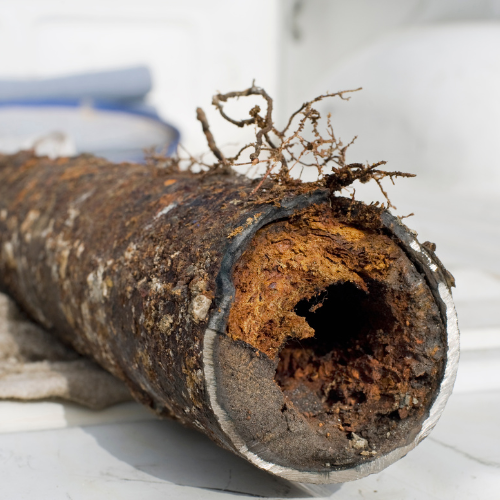Sewer Line Blockages: Causes, Prevention, and the Power of Drain Cleaning
Sewer line blockages are a common yet frustrating issue for many homeowners. When sewer lines are clogged, waste and wastewater can back up into the home, causing unpleasant odors, slow drains, and potential health hazards. In this blog, we’ll explore the causes of sewer line blockages, tips for preventing them, and how drain cleaning services can effectively clear clogs and restore your plumbing system.
Common Causes of Sewer Line Blockages
Several factors can contribute to sewer line blockages, with some of the most common causes being:
Tree Roots: Trees naturally seek out water sources, and underground sewer lines can be an attractive target. As tree roots grow, they can infiltrate the smallest cracks in pipes, causing blockages that worsen over time.
Grease Buildup: Pouring grease, oils, and fats down drains may seem harmless, but these substances can solidify inside the pipes, creating a sticky residue that traps other debris and restricts water flow.
Flushing Non-Flushable Items: Items like wipes, diapers, and feminine hygiene products can easily block sewer lines since they don’t break down as toilet paper does. Even "flushable" wipes can lead to clogs over time.
Pipe Deterioration: Older pipes, especially those made from materials like clay or cast iron, can break down and collapse, leading to blockages and leaks.
Debris and Sediment Accumulation: Over time, sediments, hair, soap scum, and other debris can accumulate within sewer lines, creating partial or full blockages.
Preventing Sewer Line Blockages
While sewer line issues can’t always be avoided, following a few preventive measures can help reduce the risk:
Dispose of Grease Properly: Instead of pouring fats and oils down the drain, dispose of them in a container and throw it in the trash once solidified.
Avoid Flushing Non-Flushables: Stick to flushing only toilet paper and human waste to avoid clogs in the sewer line.
Schedule Routine Inspections: Professional plumbers can inspect your sewer line to identify early signs of blockages or pipe deterioration, helping you prevent costly repairs.
Install Root Barriers: If you have trees near your sewer line, consider installing root barriers or discussing preventative measures with an arborist to keep roots from infiltrating your pipes.
What Is Drain Cleaning and How Does It Help?
Drain cleaning is a professional service designed to clear blockages from sewer lines and restore proper flow. Using specialized equipment, plumbers can remove even the most stubborn clogs. Here are some common drain cleaning methods:
Hydro Jetting: This method uses high-pressure water to blast away debris, grease, and even tree roots from the pipes. It’s a powerful and eco-friendly solution for removing blockages without causing damage to the pipes.
Augers and Drain Snakes: For smaller blockages, plumbers may use a drain snake or auger, a flexible tool that can break up and remove clogs from the sewer line.
Regular drain cleaning is a proactive approach to maintaining your plumbing system, and it’s especially beneficial for homes with recurring blockages. By investing in drain cleaning services, homeowners can prevent serious sewer line issues, avoid costly repairs, and ensure smooth, efficient drainage throughout their property.
Conclusion
Sewer line blockages are an inconvenience that no homeowner wants to deal with, but understanding their causes and prevention strategies can go a long way in keeping your plumbing system trouble-free. Regular drain cleaning and proactive habits, like avoiding non-flushable items and properly disposing of grease, can help reduce the risk of blockages. If you’re experiencing recurring sewer line issues, contact a professional drain cleaning service to keep your plumbing system clear and functional.

